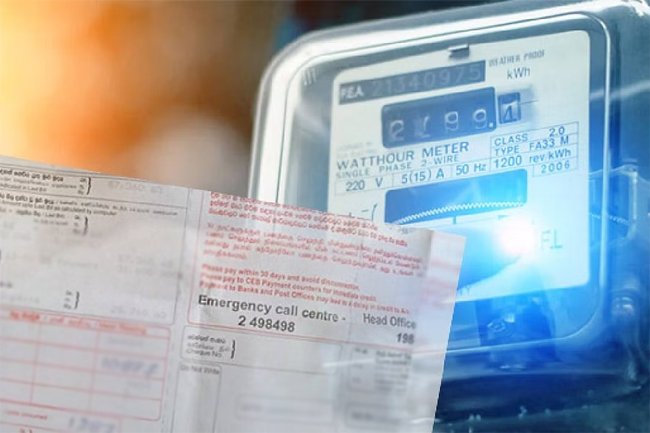Ensuring food security is one of the most critical challenges for any nation. To address this, Sri Lanka has introduced a major step forward by forming the Food Policy and Safety Committee under the Presidential Office. This initiative, approved by the Cabinet of Ministers on December 11, 2024, reflects the government’s commitment to ensuring that every citizen has access to nutritious, affordable, and safe food.
Here’s an in-depth look at the purpose, goals, and expected outcomes of this newly established committee.
Why the Food Policy and Safety Committee is Important

Sri Lanka faces challenges related to food production, distribution, and affordability. With global supply chain disruptions and local production inefficiencies, many Sri Lankans struggle to access quality food. The absence of a centralized data system to monitor food stocks and distribution has worsened the situation.
The Food Policy and Safety Committee aims to address these gaps. It will focus on improving food availability, affordability, and safety while promoting self-sufficiency through enhanced domestic food production.
Key Objectives of the Committee
The committee has several critical objectives to improve national food security. These include:
- Ensuring Access to Quality Food
Every citizen deserves access to sufficient quantities of safe and nutritious food. The government’s policy focuses on affordability, ensuring that food meets dietary needs without financial strain. - Promoting Self-Sufficiency
To reduce reliance on imports, the government plans to boost domestic food production. This will involve support for local farmers and sustainable agricultural practices. - Maintaining a Buffer Stock
The committee will ensure the country has a three-month stock of essential food items. This buffer will help address shortages during emergencies or disruptions in supply chains. - Developing a Data Monitoring System
A robust data system will be introduced to monitor food stocks, production, and distribution. This will provide real-time insights to policymakers, helping them make informed decisions. - Enhancing Collaboration
The committee will bring together public and private stakeholders, fostering cooperation in food production, wholesale, and retail operations.
Structure of the Committee
The Food Policy and Safety Committee will be co-chaired by:
- The Minister of Agriculture, Livestock, Land, and Irrigation.
- The Minister of Trade, Commerce, Food Security, and Cooperative Development.
In addition, the committee will include Secretaries from key ministries, such as the Secretary to the Prime Minister, ensuring that all relevant sectors are represented.
Key Roles and Responsibilities
The committee’s responsibilities are designed to address Sri Lanka’s current food challenges effectively:
- Policy Guidance
By relying on scientific, data-driven analysis, the committee will develop strategies to improve food security. These policies will be tailored to meet the country’s unique needs. - Monitoring Food Supply Chains
Tracking food stocks, storage, and distribution will be a priority. This ensures that essential items are always available, even during crises. - Boosting Efficiency
The committee will work to eliminate inefficiencies in food production, wholesale, and retail sectors. This involves streamlining processes and reducing waste. - Supporting Local Farmers
The committee will encourage sustainable farming practices and provide support to local farmers. This includes offering resources, training, and access to markets. - Improving Food Safety Standards
Ensuring that food meets safety standards is essential for public health. The committee will implement measures to reduce contamination and maintain quality.
Challenges the Committee Will Address
Sri Lanka has faced several challenges in achieving food security:
- Limited Food Production
A significant portion of the country’s food needs is met through imports, making it vulnerable to global price fluctuations and supply chain issues. - Lack of Data Systems
The absence of a centralized system to monitor food stocks and distribution has led to inefficiencies and shortages. - Economic Constraints
Rising inflation and reduced purchasing power have made food unaffordable for many families. - Climate Change Impact
Extreme weather events, such as droughts and floods, have disrupted agricultural production.
The Food Policy and Safety Committee is designed to tackle these issues head-on, paving the way for a more secure and sustainable food system.
Government’s Commitment to Food Security
President Anura Kumara Dissanayake has emphasized the importance of food security as a cornerstone of national development. This initiative aligns with the government’s broader policy of self-sufficiency and economic resilience.
Dr. Nalinda Jayatissa, Cabinet Spokesman and Minister, highlighted the need for a reliable database to monitor food production and distribution. This data-driven approach will ensure transparency and accountability in managing the country’s food resources.
Impact on Sri Lanka’s Food System
The establishment of the Food Policy and Safety Committee is expected to bring significant improvements to Sri Lanka’s food system:
- Improved Availability
With a focus on domestic production and buffer stocks, the country will be better prepared to handle food shortages. - Lower Food Prices
Enhanced efficiency in production and distribution will help reduce costs, making food more affordable for citizens. - Healthier Communities
Access to safe and nutritious food will contribute to better public health outcomes. - Economic Growth
Supporting local farmers and food industries will create jobs and stimulate economic activity. - Sustainability
Encouraging sustainable farming practices will help protect the environment for future generations.
A Collaborative Effort
The success of the Food Policy and Safety Committee will depend on collaboration among various stakeholders, including:
- Government agencies.
- Private sector partners.
- Farmers and agricultural organizations.
- Civil society groups.
By working together, these groups can create a resilient food system that meets the needs of all Sri Lankans.
Looking Ahead
The formation of the Food Policy and Safety Committee marks a significant step forward in Sri Lanka’s journey toward food security. While challenges remain, this initiative provides a clear roadmap for addressing them.
With a focus on self-sufficiency, data-driven decision-making, and collaboration, the government is laying the foundation for a sustainable and resilient food system.
As Sri Lanka moves forward, the Food Policy and Safety Committee will play a vital role in ensuring that every citizen has access to affordable, nutritious, and safe food—securing a brighter future for all.















